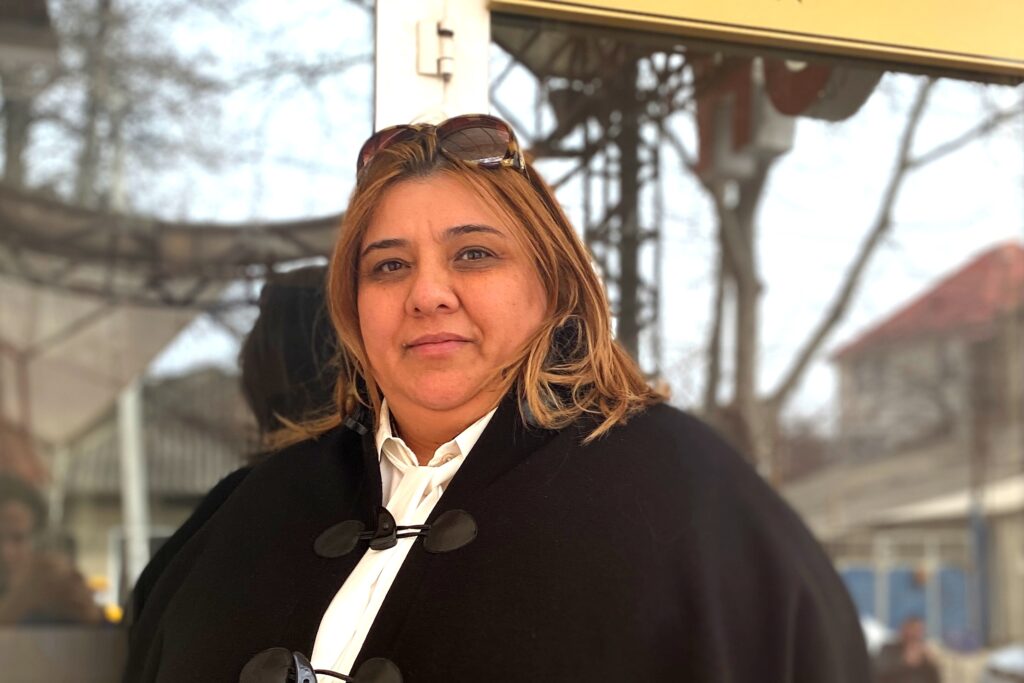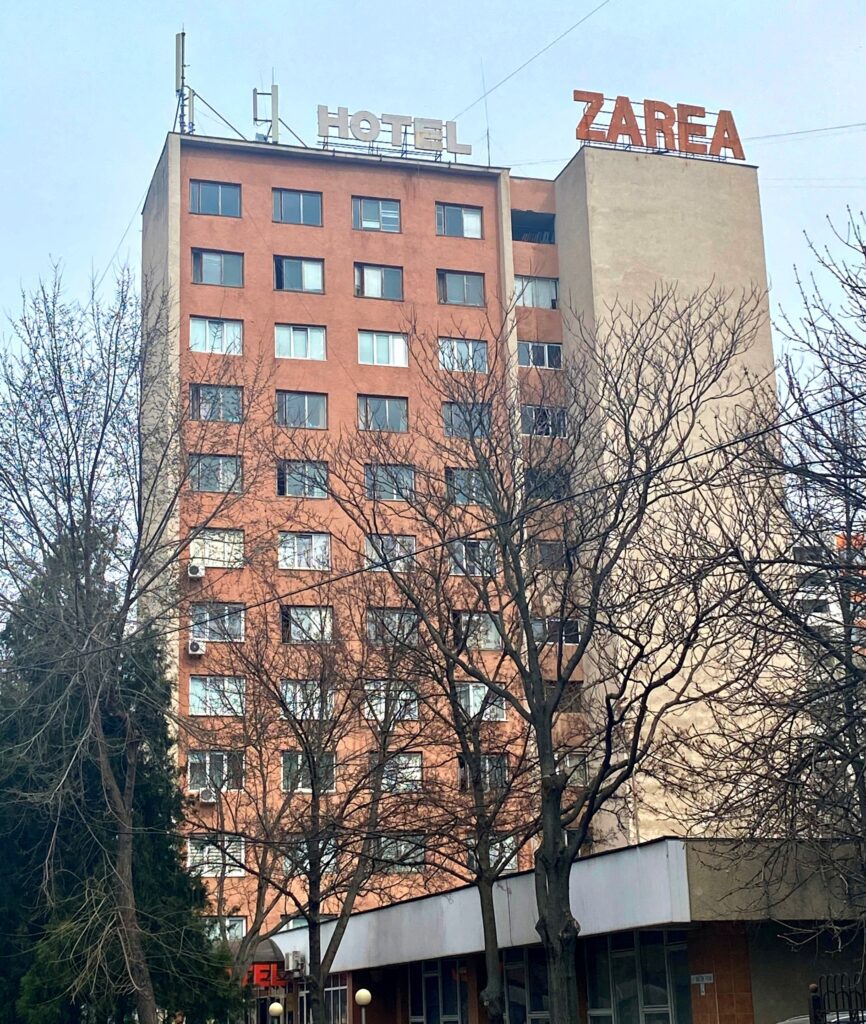It is impossible not to notice signs of Moldovan solidarity with Ukraine. From the posters with information on resources for refugees on almost every corner to the blue and yellow paint adorning the Hotel National at United Nations Square, the country’s kindness towards its Ukrainian neighbors is apparent. Many Moldovans are helping the Ukrainians who have arrived in their country, and all have their own stories to share.

One such story is that of Argentina, 45 who is the manager of Zarea Hotel in the center of Chisinau. When I meet her, she is moving around the lobby at top speed, conversing with staff, warmly greeting her guests, and checking on supplies for distribution.
She appears to be the living embodiment of Moldova’s generosity. She is a warm, welcoming, and deeply empathetic woman who has given all of herself to supporting her Ukrainian guests and ensuring their new lives in Moldova are as dignified as possible. After February 24, the first day of the war in Ukraine, Zarea Hotel became both a refuge and lifeline for Ukrainians fleeing a devastating war that took almost everyone by surprise. At the time of writing, Zarea is home to 136 guests, 28 of them aged 50 and older.
“At the start, the majority of our guests thought they would return quickly to Ukraine, so they only planned to stay a few days, but now they realize they will be gone for longer,” she tells me.
Everything is Changing
Moldova may well be small and the poorest country in Europe, but its welcome of Ukrainian refugees has exceeded all expectations. Like so many other European countries, Moldova quickly opened its arms to Ukrainian refugees, and although the government initially said the country could accommodate no more than 15,000 refugees, it has since welcomed more than 400,000.
Many have moved onward to Romania and other countries further west, but for around 95,000 Ukrainians, Moldova is their home for the foreseeable future. Many are staying with host families, in buildings converted into shelters, and hotels just like Zarea around the country.
Just as Ukrainians’ lives have been forever altered by the war, Moldovans, too, have changed at their core, Argentina believes.
“All of us Moldovans have been affected by the war,” Argentina says. “The war changed the meaning of the people coming here. Before they were tourists, and now they are refugees. But we Moldovans changed our attitudes too – about relatives, about money, everything.”
For the first two weeks of the war, Argentina slept at the hotel and never left. Such was her dedication to caring for her new guests that there was simply no time to leave. She relied on her husband to bring her new clothes every day, and it wasn’t until she finally returned home, exhausted from the chaos of that first fortnight, that she could see how deeply everyone had been affected by the war, including her own family.
She already knew that Moldovans across the country had been generous with their homes, money, and time, but when she saw her 17-year-old son had cooked new food from leftovers, simply to have something to share with the new arrivals from Ukraine, she was overcome with emotion.

An Entire Country Rises to the Occasion
In Moldova, it is customary for older generations to wish one another “peace and health” on holidays. “It is all we can want for one another,” Argentina said.
“Before the war, older generations always said ‘peace and health’ to us, but we never really understood,” she says. “Now I do.”
Like many Moldovans, Argentina is pleasantly surprised by the efficiency with which the refugee response in her country has been managed, from the border to the very center of the country.
“We are a poor country, and with the economic situation being as it is, it is incredible the way the authorities at every level have organized and coordinated. It was not just the government, though. People mobilized to help and do our best in general,” she says.
“I am surprised and proud of everything we, as a country, have done and continue to do. The responses in countries like Poland and Germany are no surprise, but we are a small country and not as developed. I need to be proud of what we have done.”
She has noticed that, for many, the values her fellow Moldovans had before the war has shifted. Materialism and commercial thinking, she says, have gone as people open their doors to Ukrainian refugees and donate everything they have.
“People are thinking purely with their hearts and not with their brains or wallets,” she says with tears in her eyes. “It is a really beautiful change.”
Zarea Hotel is one of 49 Refugee Accommodation Centres around Moldova where HelpAge International is distributing food and hygiene kits. Based on the needs and resources of the centers, HelpAge arranges for two or three hot meals to be provided a day, prepared by local caterers and based on specific identified needs.
By Sarah Pilchick, Humanitarian Communications Manager, HelpAge International
